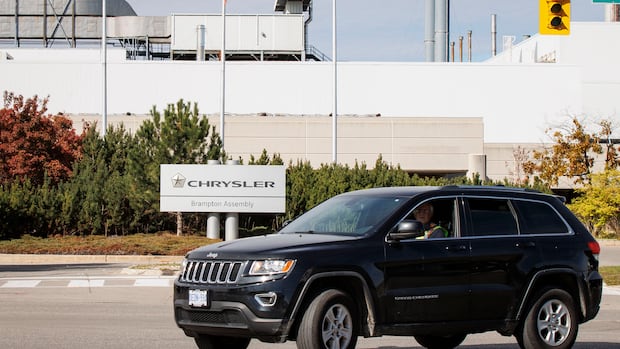The federal government is firing back at Stellantis and General Motors by limiting the number of tariff-free vehicles the automakers can import from the U.S. to sell in Canada, CBC News has learned.
The two multinational manufacturers will no longer be exempt from paying Canada’s retaliatory tariffs on as many U.S.-assembled vehicles as before, sources said.
The move is expected to put pressure on the companies to reinvest in Canadian production and workers to get this benefit back and avoid a big tariff bill.
Ottawa is taking action after Stellantis announced its plan to expand in the U.S., including moving its production of the Jeep Compass in Brampton, Ont., to Illinois.
General Motors also confirmed Tuesday that it was ending production of its BrightDrop electric delivery vans at a plant in Ingersoll, Ont., due to demand.
In April, the Canadian government offered auto companies exemptions so they didn’t pay the price for Canada’s 25 per cent retaliatory tariffs on the American auto sector.
WATCH | Automakers that keep building in Canada granted tariff exemption: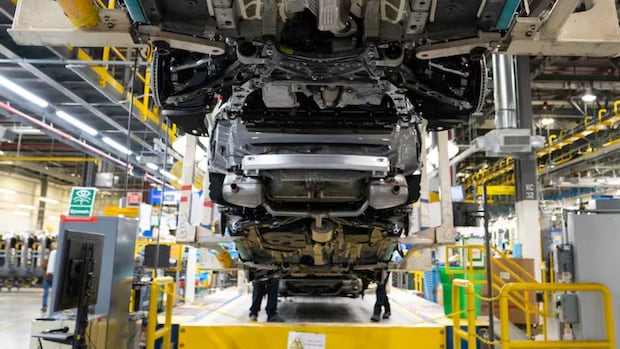
Federal government says automakers that keep building in Canada will get tariff exemption
The federal government has announced that auto manufacturers will be allowed to import a certain number of U.S.-assembled vehicles — ones that comply with CUSMA — free of the countermeasure tariffs Ottawa imposed in response to Trump’s levies.
But that benefit came with strings attached – the automakers had to continue making vehicles in Canada and complete the investments they’d already planned.
If companies broke that condition, the government warned it would limit how many tariff-free vehicles companies could import from the U.S.
Sources told CBC News the government now believes Stellantis and GM are no longer meeting that requirement so Ottawa is lowering their remission rate quota until the companies live up to its promises.
The government is reducing GM’s annual remission quota by 24 per cent and Stellantis’s by 50 per cent. A remission quota allows a company to import a specific maximum number of goods – such as automobiles – tariff-free, dependent on meeting production commitments.
CBC News is not naming the sources who have knowledge of the government’s move because they were not authorized to speak publicly about it.
WATCH | Ottawa threatens action against Stellantis: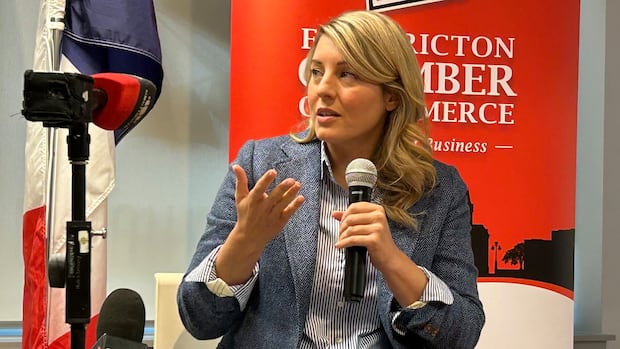
Ottawa threatens legal action against Stellantis
Canadian politicians of all stripes expressed anger and frustration over Stellantis moving Jeep production from Brampton, Ont., to Illinois — and Ottawa is considering taking legal action.
Industry Minister Mélanie Joly has called Stellantis’s move unacceptable and threatened legal action, citing the fact the government gave the company millions of dollars contingent on Stellantis keeping its Canadian footprint.
Joly warned on Tuesday she was looking for ways to put maximum pressure on the company to keep its commitments.
Ontario Premier Doug Ford also threatened to sue GM if they breach their contract and don’t find a new product for the Ingersoll plant.
Prime Minister Mark Carney said on Thursday that while GM indicated it would honour its obligations to pay workers, that’s not enough.
“We’re not satisfied with that,” he said.
At an announcement with Ford, Carney said they are working on figuring out what else can be done with the GM plant and if it could be part of Canada’s upcoming defence industrial strategy. Carney has been working on a plan to pivot Canada away from overreliance on the U.S.
Carney also pointed to ongoing talks with the Trump administration to try and get some sectors relief from being pummeled by American tariffs.
The prime minister warned that if Canada doesn’t make progress on those talks, the government will “do what’s necessary to protect our workers.”
“It starts with building, taking the control there. But it’s also not having unfair access to our market, if we don’t have access to another market,” Carney said. “We’re not at that point.”
WATCH | ‘We’re in lockstep’, says Carney about U.S. trade negotiation approach: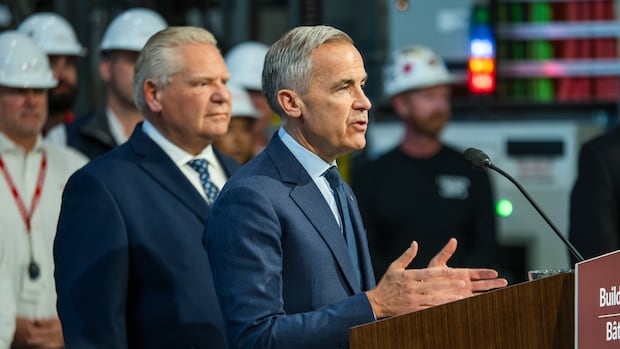
‘We’re still in lockstep,’ says Carney on Ford U.S. trade negotiation approach
Prime Minister Mark Carney was asked by reporters about his approach to U.S. trade negotiations, highlighting discrepancies with that of Ontario Premier Doug Ford who has advocated for tougher treatment of the Trump administration.
U.S. President Donald Trump has signalled he wants to dominate auto manufacturing. The White House has been hitting Canada’s auto sector with a 25 per cent tariff on all finished vehicles that aren’t compliant with the Canada-U.S.-Mexico Agreement (CUSMA).
Trump’s commerce secretary Howard Lutnick told an audience in Toronto this month he wants to drain auto assembly from Canada.
Carney said Canada pays the lowest tariffs on auto and auto parts into the United States, but added that needs to be done as part of a “bigger set of negotiations” with the Americans.
“We have the best deal with respect to autos, but we have to work to get it even better,” he said.
Conservative leader Pierre Poilievre took aim at Carney on Thursday morning, saying he’s broken his promise to negotiate a win with Trump and protect Canada’s auto sector.
“We need him to actually keep his promise and defend auto workers in the negotiations with the Americans,” Poilievre said.
WATCH | Trump suggests auto imports affect national security: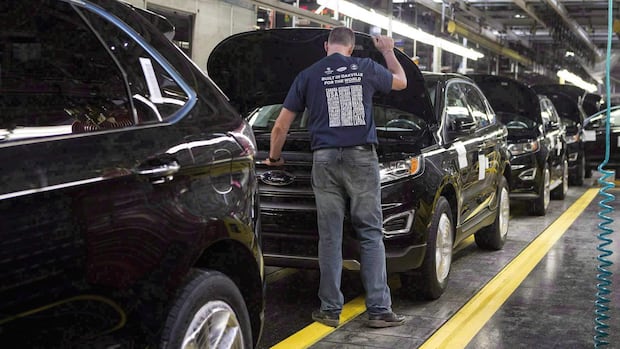
Trump suggests auto imports affect national security
The Trump administration is exploring whether auto imports threaten national security.

